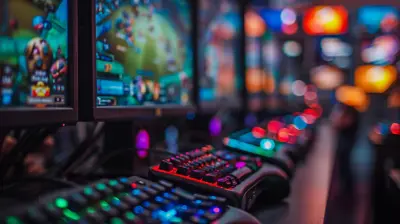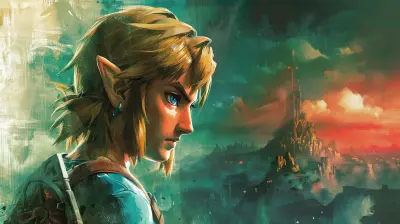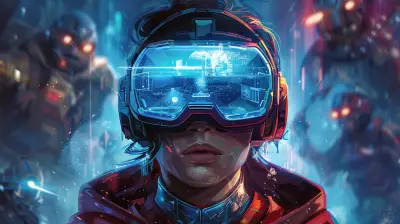How Competitive Games Foster a Global Community of Gamers
29 August 2025
Gaming isn’t just a hobby anymore—it’s a thriving, interconnected culture that spans the globe. Whether you're battling in a chaotic MOBA, storming through a tactical FPS, or outsmarting opponents in a digital card game, competitive gaming has an uncanny ability to bring people together. But how exactly does that work? Why do gamers from every corner of the world feel so connected?
Let’s dive deep into how competitive games foster a global community of gamers, one match, chat, and friendship at a time.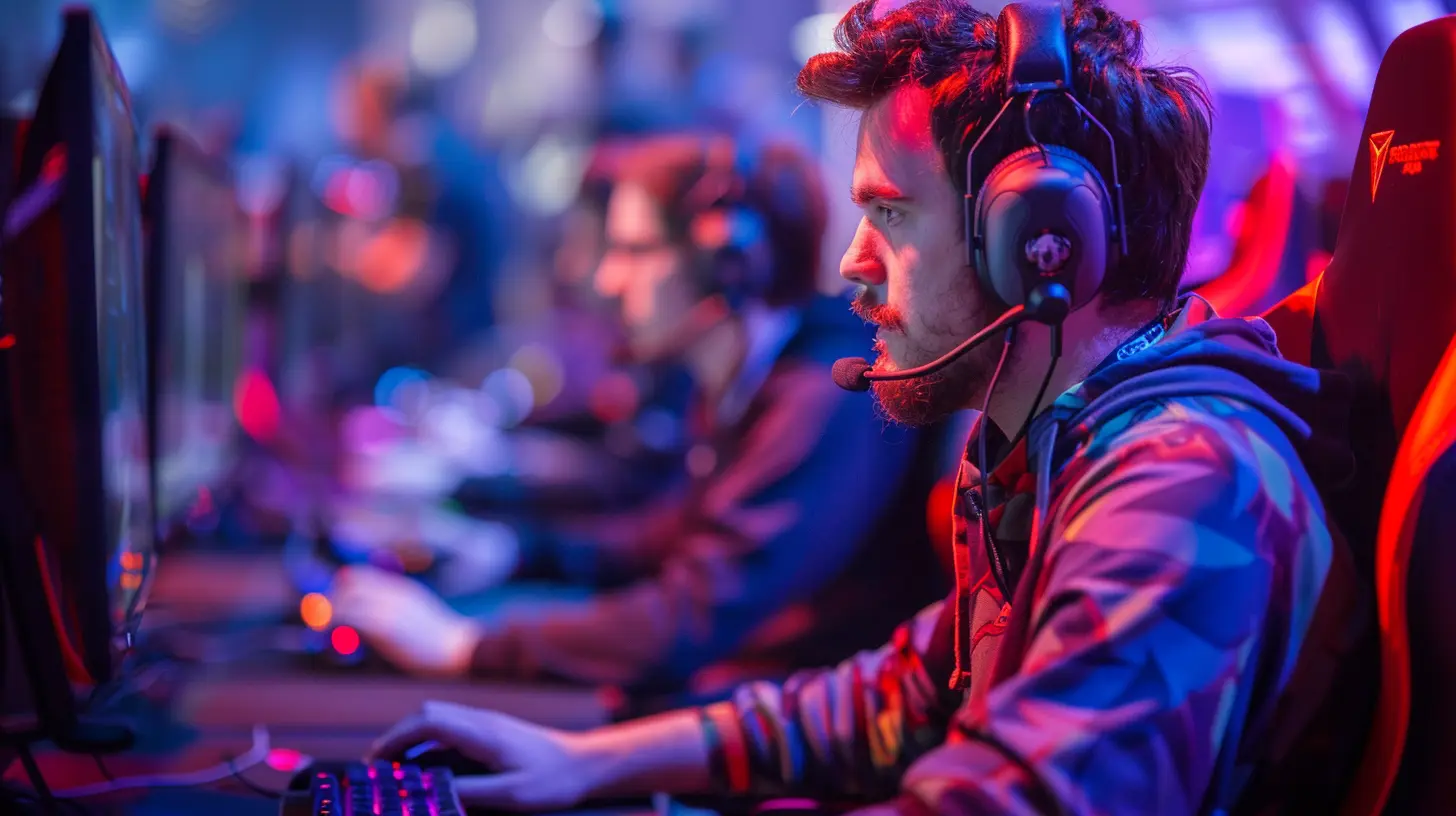
The Digital Battlefield: A Global Playground
Imagine this: you're queuing up for a ranked match in your favorite game. It’s 11 p.m. where you are, but your teammate's mic crackles alive with a greeting in heavily accented English—it’s a gamer from Japan. On the other side of the game, there’s someone from Brazil. None of you speak the same native language, yet for the next 30 minutes, you’ll work together as if you’ve known each other forever. How cool is that?Competitive games act like a universal language. Just like music or math, a well-timed frag or a clutch play doesn’t need translation. Regardless of where we come from, gaming provides a shared digital "playground" where communication transcends cultural barriers. Sure, there might be misunderstandings, but that's half the fun, right? Hand gestures in real life meet ping systems in games, and suddenly, collaboration becomes effortless.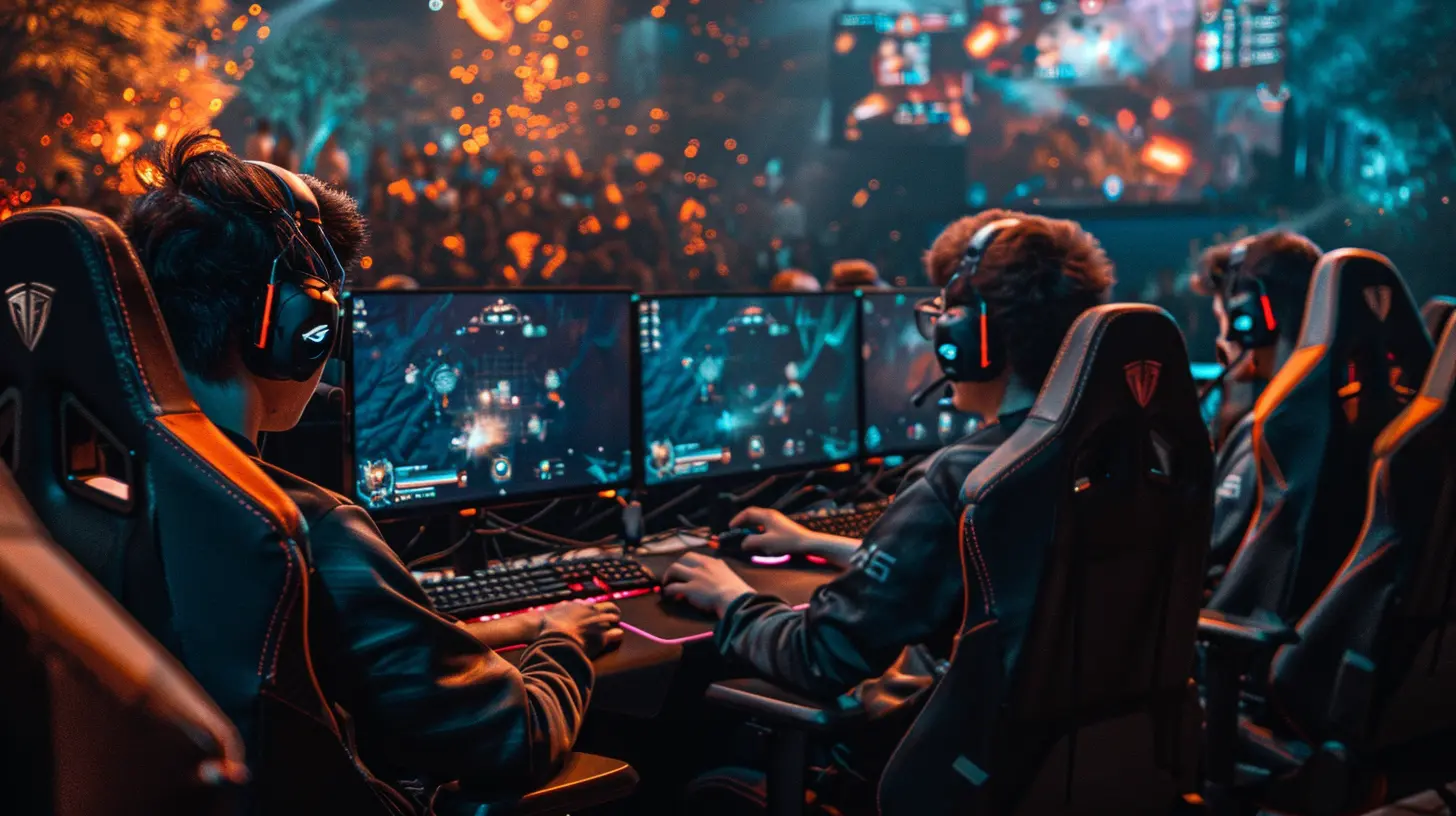
The Role of Esports: A Virtual Olympics for Gamers
Competitive gaming grows exponentially when esports enters the chat. Think about it: what other form of entertainment lets you watch a 16-year-old from Sweden take on a seasoned pro from China, live-streamed to millions? Esports is where the world’s best gamers duke it out, and for fans, it feels like the Olympics—but way cooler.Esports tournaments, like League of Legends Worlds, The International (Dota 2), or CS:GO Majors, bring together players from dozens of countries. The audience? Even bigger. Fans tune in from their living rooms, cafes, and even during awkward work breaks (don’t worry, we’ve all been there). It’s not just about watching the game; it’s about rooting for a team that may or may not even share your language.
What’s even more fascinating is how esports blurs national boundaries. You know when a South Korean team like T1 wins, you’ll see fans from Canada, Germany, and Australia in the Twitch chat spamming “PogChamp.” It’s this collective, global excitement that bridges gaps and builds camaraderie.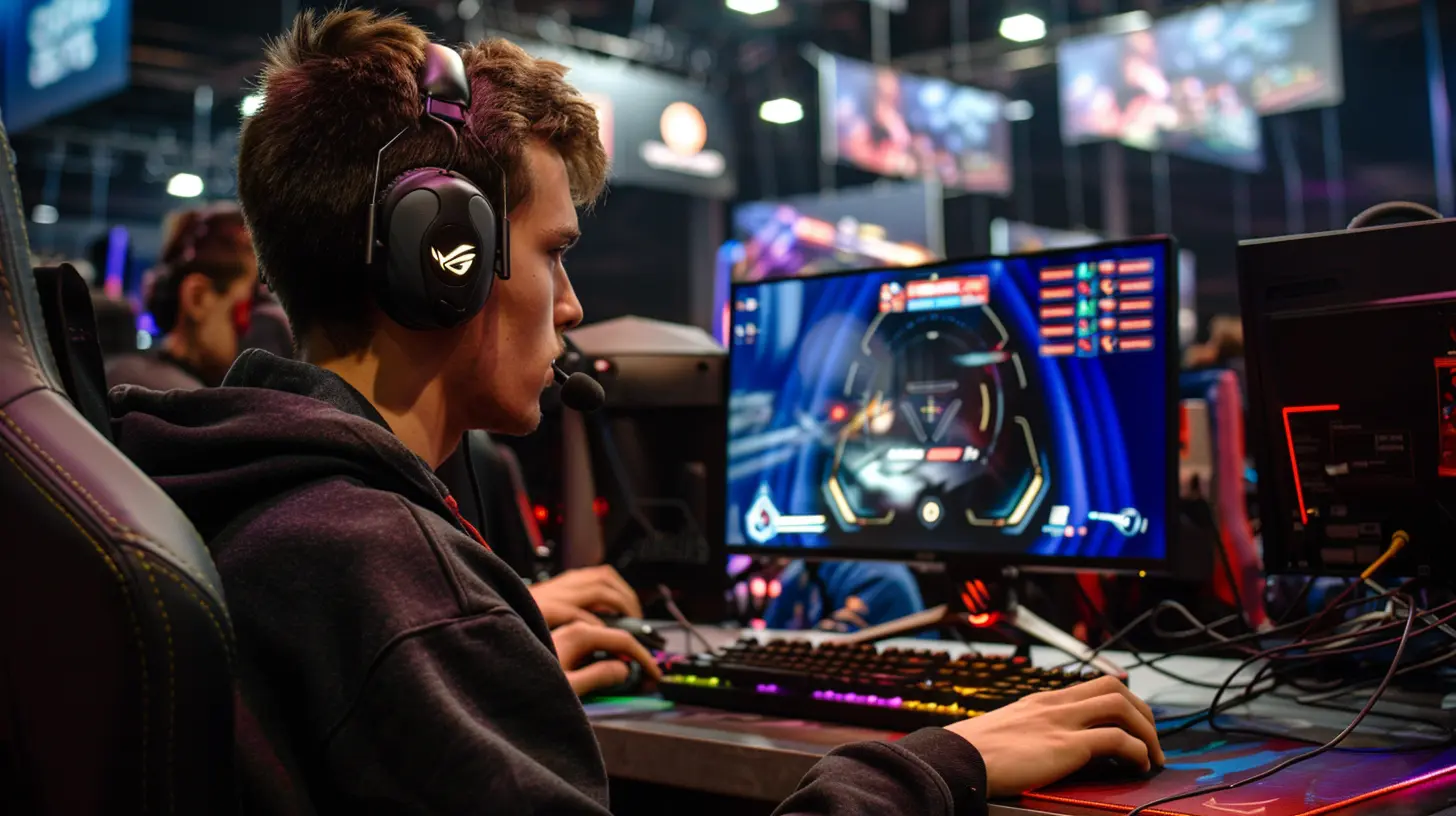
Cross-Cultural Friendships: From Chat Rooms to Lifelong Bonds
Competitive gaming has a knack for birthing unexpected friendships. Picture this scenario: you’re grinding ranked all night, and you keep getting paired with the same player. Fast-forward a few matches—you’re exchanging dank memes with someone from halfway across the world. Next thing you know, you’re chatting daily, maybe even learning a new language. Sounds wholesome, right?For many, gaming serves as a gateway to cross-cultural experiences without ever leaving the house. Online friendships formed in competitive games are unique because they’re forged in the heat of battle. It’s a bit like surviving a zombie apocalypse together—except with fewer zombies and more respawns.
Let’s not forget about gaming clans and guilds, which often resemble digital families. Members hail from different countries, different time zones, and yet work together like a well-oiled machine. These communities thrive on collaboration, trust, and a mutual love for the game.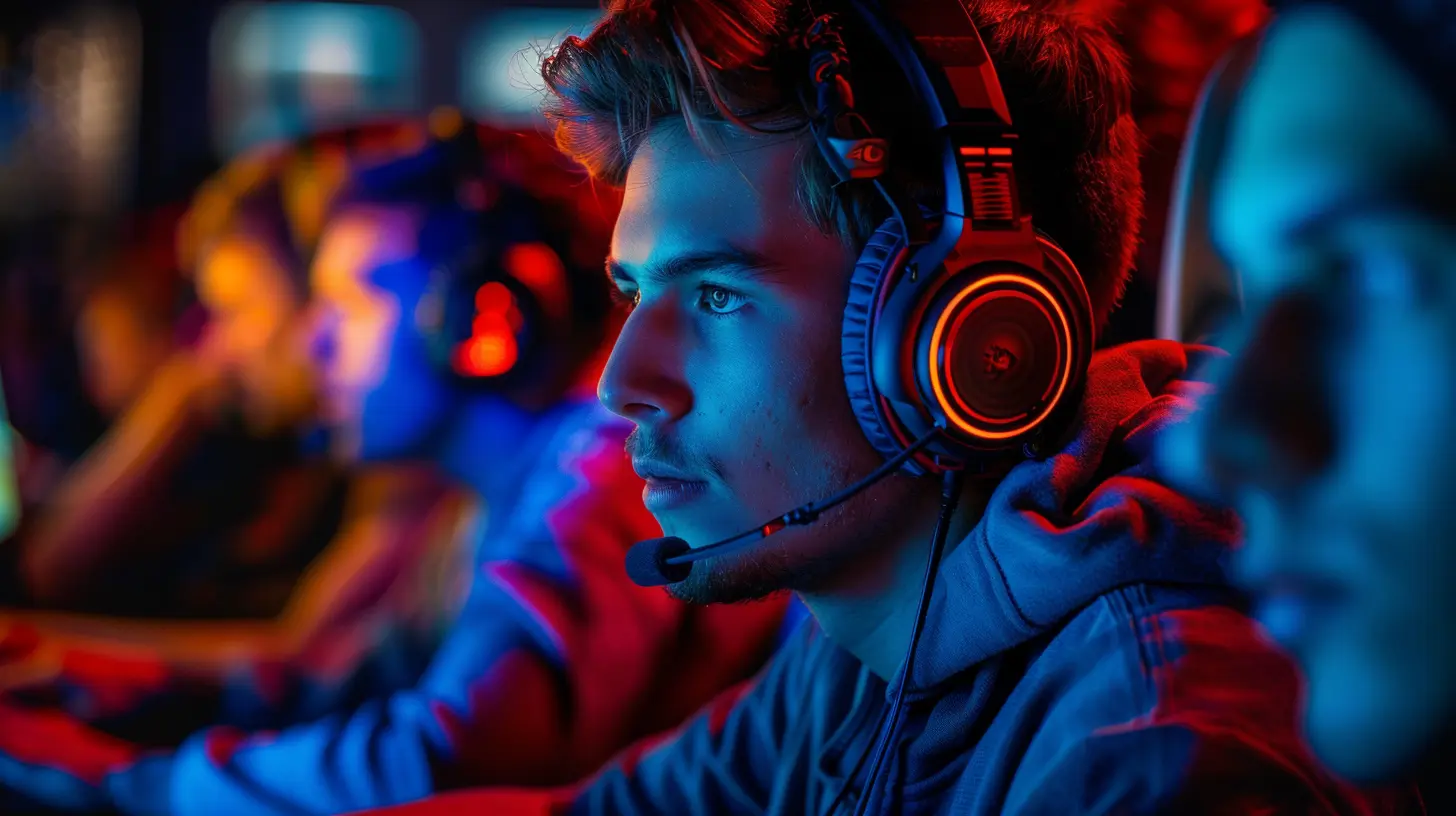
Breaking Stereotypes and Embracing Diversity
For years, gamers have battled stereotypes—the idea that they’re anti-social loners living in their parent’s basement still lingers in some people’s minds. But competitive games? They’ve shattered that cliché into a million pixels. Gamers today are as diverse as the population itself.Competitive games welcome everyone to the table. Whether it’s a teenage girl climbing the leaderboards in Valorant or a retiree perfecting build orders in Starcraft II, gaming knows no boundaries. Representation in games has also improved, offering characters and stories that reflect players from all walks of life. This inclusivity fosters empathy and understanding, both in and out of the game.
On top of that, competitive games actively encourage teamwork. You’ll often see players adapting their communication styles to accommodate teammates with different cultural norms. It’s a learning experience—sometimes frustrating, sure, but always rewarding.
Technology Has Made It All Possible
Let’s take a moment to appreciate the real MVP here—technology. Without fast internet, high-performing servers, and platforms like Twitch and Discord, building a global gaming community would be impossible.Think about it: back in the day, laggy dial-up connections meant you were yelling at your monitor instead of teamwork-building. Now? We’ve got matchmaking systems that can pair you with someone across the planet in seconds. Competitive games thrive on this tech infrastructure, using it to foster seamless communication and collaboration.
Speaking of Discord, how great is it? It’s like the virtual hangout spot where friendships deepen beyond the game. Whether it’s sharing memes, hyping up a teammate’s clutch play, or discussing non-gaming topics, platforms like Discord solidify the bonds gamers form.
The Ups and Downs of Global Gaming Communities
Of course, it’s not all rainbows and GG’s (good games). Competitive gaming communities can occasionally get… intense. Toxicity exists, unfortunately, and language barriers can sometimes lead to misunderstandings. But here’s the thing: these challenges often come with opportunities for growth.Sure, you might encounter a salty teammate or two (okay, maybe a lot more), but it’s nothing that can’t be balanced out with the overwhelming positivity of the global gaming community. Plus, most gamers learn valuable lessons about conflict resolution. You learn to mute and move on, or better yet, be the glue that keeps your team united.
How Gaming Breaks Down Walls (Literally and Figuratively)
At its core, competitive gaming is about problem-solving—whether it’s solving in-game challenges or overcoming real-world barriers. It teaches us patience, strategy, and teamwork. But most importantly, it reminds us that at the end of the day, we’re not so different after all.Competitive games create windows into other cultures. Maybe you learn a few words in Spanish while playing with your teammate from Mexico. Or maybe you discover an entirely new cuisine because your friend from Italy won’t stop talking about carbonara. Gaming doesn’t just create a global community; it builds a bridge to understanding.
The Future of Global Gaming Communities
The future? It’s looking brighter than a well-lit gaming rig. Developers are increasingly designing games with inclusivity and cross-play in mind. Cross-play itself is a massive game-changer—allowing players on different platforms (PC, console, or mobile) to compete together. It’s like tearing down digital walls.Virtual reality (VR) also promises to take global gaming communities to the next level. Imagine interacting with teammates as fully-rendered avatars in an immersive 3D world. Crazy, right? The more technology evolves, the more connected we become.
Final Thoughts
Competitive games have done what few activities in human history have managed to achieve—create a global community that thrives on diversity, teamwork, and shared passion. From casual gamers to hardcore pros, everyone has a seat at the table (or, in this case, a spot on the server). So, the next time you hit “queue,” remember: you’re not just playing a game; you’re contributing to a digital melting pot of cultures and friendships. Isn’t that awesome?all images in this post were generated using AI tools
Category:
Competitive GamingAuthor:

Luke Baker
Discussion
rate this article
2 comments
Arianth Mendez
Competitive games transcend borders, uniting players through shared goals and challenges. This vibrant global community fosters collaboration, cultural exchange, and mutual understanding, highlighting the power of gaming to build connections and friendships across diverse backgrounds.
January 28, 2026 at 4:24 PM
Zaylee Soto
Competitive games: where friendships bloom faster than character upgrades! Who knew battling over loot could turn strangers into global buddies? Join the chaos—your new BFF awaits!
August 29, 2025 at 4:25 AM

Luke Baker
Absolutely! Competitive games create unique social bonds, turning competition into collaboration and friendships. It's amazing how shared experiences in intense gameplay can forge lasting connections across the globe!
